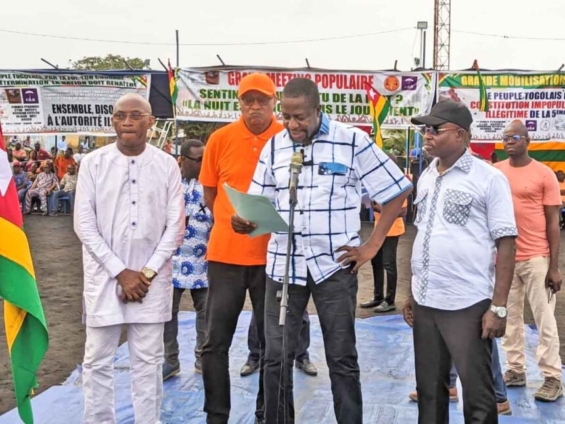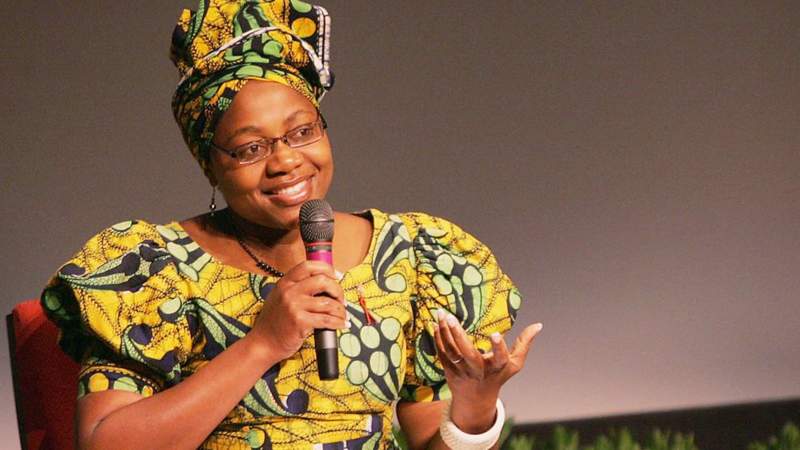Togo’s Political Crisis Deepens as Opposition Protests Shift to Parliamentary System

Togo is witnessing a mounting political crisis as opposition parties, civil society organizations, and a growing number of concerned citizens take to the streets to protest what they describe as a dangerous drift toward authoritarianism.
At the heart of the unrest is the recent constitutional reform that transformed the country’s political structure from a presidential to a parliamentary system — a move that critics argue consolidates power in the hands of a small ruling elite.
Over the past few weeks, tensions have escalated across the capital city, Lomé, where thousands of protesters have gathered in mass demonstrations organized by an ad-hoc working group made up of opposition leaders and civic activists.
The protesters are demanding the repeal of the newly established 5th Republic and the cancellation of political appointments that they claim lack transparency and popular legitimacy.
The constitutional amendment, passed swiftly by the National Assembly, was introduced without broad national consultation and approved under circumstances that many observers describe as opaque.
Under the new system, executive authority has shifted away from a directly elected president to a prime minister chosen by parliament — a parliament that is heavily dominated by the ruling Union for the Republic (UNIR) party.
President Faure Gnassingbé, who has ruled Togo since 2005 after succeeding his father, is now set to wield significant influence through parliamentary mechanisms rather than direct electoral mandates.
Opposition leaders have condemned this shift as a betrayal of democratic principles. According to them, the new structure eliminates vital checks and balances, rendering the democratic process toothless and further entrenching the Gnassingbé family’s grip on power — a political dynasty that has ruled the country for over half a century.
“This is not a reform, it is a regression,” said Jean-Pierre Fabre, a prominent opposition figure and former presidential candidate. “What we are witnessing is a coup against democracy disguised as legal reform. Power is being taken away from the people and handed over to a clique of loyalists.”
Civil society groups have echoed these sentiments, accusing the government of using constitutional reform as a pretext to avoid accountability and weaken institutions that protect civic rights. Activists argue that by eliminating the need for direct presidential elections, the reforms deny the Togolese people the right to choose their national leaders, undermining the core tenet of representative democracy.
“The citizens of Togo deserve the right to vote for their leaders in a transparent and fair manner,” said Nadia Agbeko, a spokesperson for the Coalition of Democratic Forces, a prominent civil society umbrella organization.
“This new system removes that right and makes it easier for power to be transferred and preserved behind closed doors.”
Despite government assurances that the reforms are aimed at improving governance and aligning Togo with other parliamentary democracies, public skepticism remains high.
Many point out that the ruling party has a history of manipulating political reforms to serve its interests. Previous changes to term limits and electoral procedures have repeatedly favored the incumbent regime, further eroding trust in state institutions.
Adding to the turmoil, several opposition leaders and activists have reportedly faced harassment, arbitrary arrests, and restrictions on their ability to organize protests.
Human rights organizations have called on the international community to monitor the situation closely and pressure the Togolese government to respect civil liberties and engage in open dialogue.
In response to the growing unrest, opposition groups are demanding an immediate suspension of the reforms and the initiation of an inclusive national dialogue that would involve all political stakeholders, religious leaders, and representatives from civil society.
They argue that only through such a dialogue can the country avoid further polarization and the risk of political instability.
“We must return to the people. Let the citizens decide through a national referendum whether they want a presidential or parliamentary system,” said Brigitte Kafui Adjamagbo-Johnson, a leading voice in Togo’s feminist political movement. “Any change that bypasses the will of the people is illegitimate and must be resisted.”
As the standoff continues, international actors — including regional bodies such as ECOWAS and the African Union — are being urged to step in and mediate the crisis before it spirals out of control.
There are growing fears that if the current impasse is not resolved through peaceful means, Togo could slide into prolonged unrest, reversing years of democratic progress in the West African nation.
For now, the streets of Lomé remain a focal point of resistance, with the opposition vowing to sustain the pressure until their demands are met.
What happens next could determine not just the future of Togo’s political structure, but also the broader trajectory of governance and democracy in the region.
Source: Thepressradio.com





